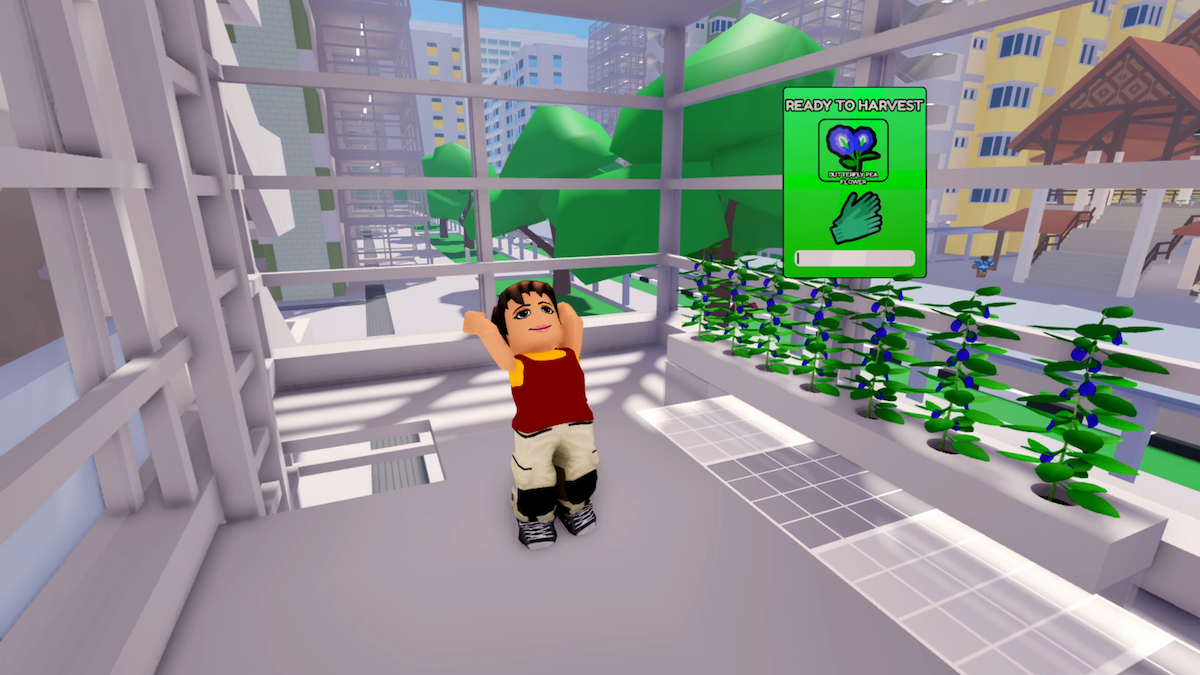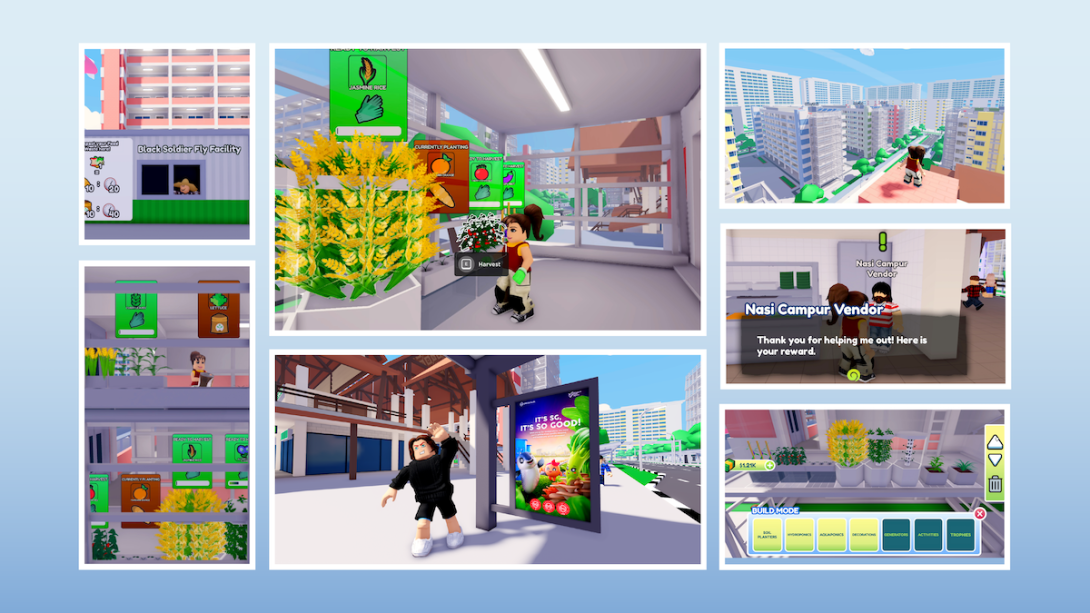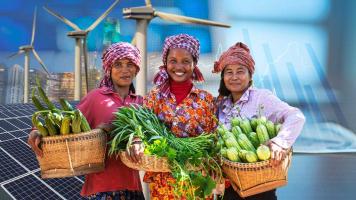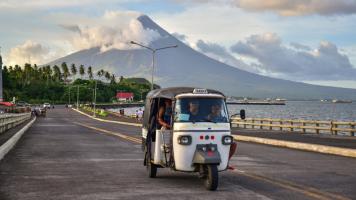Game on: Schooling Digital Ninjas on Sustainable Urban Farming

Chief Storyteller, MeshMinds

Chief Connecting Officer, MeshMinds

Through Sky Farm Island, players can learn about hydroponics and aquaponics and eco-friendly food production. Photo credit: Courtesy of MeshMinds.
With 200 million monthly users, gaming platform Roblox is fertile ground for online learning initiatives targeting those born after 2010—the planet's youngest generation.
This article is published in collaboration with The MeshMinds Foundation.
Traditional teaching methods, while vital, may sometimes fail to resonate with digitally native generations who are increasingly attuned to interactive and hands-on experiences. A recent study by digital marketing agency Razorfish on Generation Alpha—those born after 2010 and currently the youngest generation—found that “gaming has evolved from gameplay and socializing with friends, to self-expression." Alphas are digital ninjas, who use gaming to express their creativity. When playing, they are motivated by building and creating their own worlds. The COVID-19 pandemic fundamentally changed the relationship between Generation Alphas, their parents, and technology. Out of necessity, schools had to integrate technology to engage students in the new remote learning environment and the presence of interactive digital experiences in the classroom is now only set to grow.
Even the United Nations Environment Programme (UNEP) has ventured into game-based learning through the "Playing for the Planet" initiative, an alliance that supports the video games industry to take action to reduce its environmental impact. While facilitated by UNEP, the alliance is led by the video games industry, which adopt gamified approaches that engage learners, particularly digitally native youth, and foster active participation, creativity, problem-solving and critical thinking.
The Adrienne Arsht-Rockefeller Foundation Resilience Center (Arsht-Rock) is taking the same route. It leverages on the 3 billion people who play video games across the globe as an audience to build climate resilience. Aside from partnering with game companies, Arsht-Rock is also providing funding and content support to top-tier indie developers to include gameplay where players interact with climate resilience solutions. They believe that the more people play games, the more they learn and develop skills to craft complex solutions to address climate change.
Leveraging game-based learning to promote sustainable agriculture
While UNEP and Arsht-Rock are leveraging game-based learning to educate young people about the environment and climate change, at The MeshMinds Foundation, we decided to try out this new learning tool to put a spotlight on agriculture, which is central to life in Southeast Asia where we are based.
Eight out of 10 countries in the Association of Southeast Asian Nations (ASEAN) are dependent on agriculture. The region is a major producer of palm oil, rubber, rice, seafood and fruits. However, climate change, overfishing, and unsustainable practices are threatening the sustainability of agriculture.
Urgent action is needed to safeguard agriculture, not just to ensure food security but also the income of smallholder farmers across the region.
Amid the growing urgency to secure sustainable food sources in the face of environmental challenges, the Singapore Food Agency has set an ambitious target known as “30 by 30” to produce 30% of the nation's nutritional needs by 2030. What better way to instil this goal into the minds of tech savvy youth than a gamified and interactive experience.
Our newly released game, Sky Farm Island, aims to do just that. We chose to deploy the game on the online gaming platform, Roblox, which has more than 200 million monthly active users. At the heart of game lies an imaginary sustainable farming utopia, where players step into the shoes of a farmer with a mission to build and manage a vertical farm in the heartlands of Singapore.
Embracing cutting-edge agricultural technologies like hydroponics and aquaponics, players discover a realm of eco-friendly food production that educates them on how to grow successfully without soil or in an urban setting. As players advance through the game, they will learn about the advantages of vertical farming, including higher crop yields and improved water efficiency. Moreover, they will understand how vertical farming can effectively tackle challenges like food scarcity and climate change. Players will also discover a diverse array of crops unique to Southeast Asia.
Importantly for the target audience firmly rooted in Generation Alpha, Sky Farm Island blends entertainment and education—with a sense of purpose. Through the game, we hope to school gamers about the future of food production, inspire them to join the “grow your own” movement, and engage with a vibrant community of like-minded city-dwelling kids, fostering collaboration and promoting shared solutions to global food challenges.

How about going one step further and being able to link behaviors in the digital and physical worlds? Working with environmental engineer and climate action designer, Katie Patrick, Sky Farm Island is launching the Sky Grow Challenge to encourage children to start growing vegetables at home.
According to a University of Texas study, students who participated in gardening, nutrition, and cooking classes consumed, on average, an additional half serving of vegetables daily compared to their habits before the program. Similarly, researchers from the Ohio State University and Cornell University found that children who actively cultivated vegetables at home or school were five times more likely to consume their greens. Thus, integrating educational content about sustainable farming and vertical farming practices into gaming platforms can nurture a generation that not only possesses knowledge about environmental issues but also exhibits a genuine passion for discovering and adopting sustainable solutions in their lives.
The interactive nature of gaming platforms, like Roblox, allows for an educational experience set in 3D virtual worlds that can effectively engage and motivate “digital ninjas” who are now entering their teens, have a strong sense of identity, and are comfortable voicing their opinions.
However, as with any technology, there are potential drawbacks to consider. As we delve deeper into this digital frontier, we must keep an eye on issues like data privacy and security. It is crucial to safeguard sensitive information to protect the privacy of young learners. Moreover, it is essential to strike a balance between entertainment and education, as too much gamification might lead to a shallow understanding of complex topics.
Let us seize the opportunity to shape a future where the boundaries of learning are limitless, where knowledge and play merge seamlessly, and where our youth emerges as the architects of a sustainable and prosperous world.
Together, we can embark on a journey that transcends pixels and avatars, paving the way for future generations to be equipped to embrace the “future of food” with resilience, innovation, and compassion. With gaming technology as a learning tool, the metaverse becomes more than a realm of imagination, it becomes a gateway to hope, empowering us to cultivate not just crops but a future of abundance and harmony for people and planet alike.

Justinne Alethea Casuga
Chief Storyteller, MeshMindsAs chief storyteller at MeshMinds, Justinne Alethea Casuga believes in the power of narratives to drive empathy, inspire action and foster a positive impact for people and the planet. Her interests in art, design, and technology has led her to explore the exciting realm of digital storytelling to engage audiences in new and meaningful ways.

Kay Poh Gek Vasey
Chief Connecting Officer, MeshMindsKay Poh Gek Vasey is the chief connecting officer at MeshMinds, which operates as a creative technology studio. Vasey offers expertise and advocacy on XR creation and production, metaverse pedagogy, digital sustainability, digital transformation, and the future of art and creativity. She believes in the power of artists to inform conversations and inspire positive actions that result in measurable impact for a better world. She is also founder of MeshMinds Foundation.

MeshMinds
MeshMinds is a nonprofit foundation and creative technology studio that invests in games for good. We connect impact artists, tech for good developers, and sustainability advocates. Together, we build immersive and interactive experiences that encourage digital youth to learn through play and effect real-world impact that supports the sustainable development of people and our planet.


